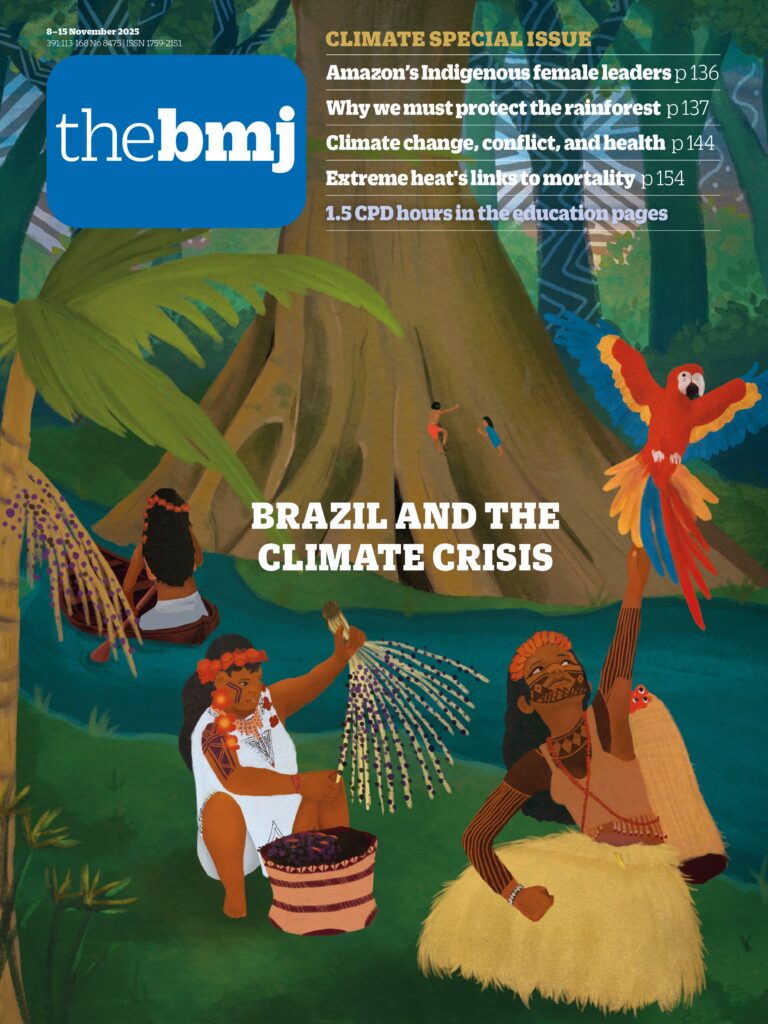- Scarlett McNally, professor
- scarlettmcnally{at}cantab.net
Follow Scarlett on X @scarlettmcnally
My mother recently died peacefully at the age of 90. On her final morning she was briefly awake, surrounded by loving family, and then she gently slipped away. I was reminded of Kathryn Mannix’s excellent teaching about death being a natural physiological process.1 End-of-life care is often neglected, but we need care and support for dying as much as for living.
We need more palliative care teams and funding for services. But palliative and end-of-life care are beset by a funding crisis2: the National Audit Office has identified that nearly two thirds of hospices report a financial deficit.3
In my personal life and my 36 years as a doctor I’ve been acutely aware of death. I remember having what I was told was an incurable cancer diagnosed—myeloma with cardiac amyloidosis4—when two of my children were still at school. I became focused on not dying, investigating different treatments and evidence about how physical exercise could improve prognosis. I’m doing well now, thanks to our amazing NHS.
It’s a human instinct to look for solutions and try to remain in control even in overwhelming situations. But while we have some autonomy over medical interventions that can prolong life, we also need to learn to accept the inevitability of death and provide better care and support for dying people.
I’ve regularly seen death up close in my work as an orthopaedic surgeon. I’ve worked as a surgeon and as an advanced trauma life support instructor. I met dozens of survivors of suicide attempts, especially in the first decade of my consultant career. Coastal erosion of the cliffs near where I work meant that there were multiple places that literally broke people’s fall. Each person was cared for in our hospital—with operations, wound reviews, scans, x rays, and follow-up clinics over weeks and months.
Many had long term physical injuries, but for most the mental pain they had experienced before their attempt had been far greater. Still, most were grateful that they hadn’t died on their intended day. I remain in awe of people who connect with their communities to do something for others to improve their suffering, such as volunteers, charity workers, or community stalwarts helping people who are experiencing suicidal thoughts. For many people, a brush with death can offer a new perspective on life.
Now, as we make funeral plans for my mother, I remain hugely grateful that the NHS saved my family from having to plan mine. The love and care we rely on in life is also crucial during dying. I want to use my platform as a columnist, doctor, patient, and mother to encourage people not to fear natural death—and to value our NHS and palliative care services for supporting everybody from beginning to end.
Footnotes
-
If you’re struggling, you’re not alone. In the UK and Ireland, Samaritans can be contacted on tel 116 123 or email jo@samaritans.org or jo@samaritans.ie. In the US, the National Suicide Prevention Lifeline is 1-800-273-8255. In Australia, the crisis support service Lifeline is 13 11 14. Other international helplines can be found at www.befrienders.org
-
Competing interests: Scarlett McNally is a consultant orthopaedic surgeon in East Sussex, honorary clinical professor at Brighton and Sussex Medical School, deputy director of the Centre for Perioperative Care, and past president of the Medical Women’s Federation.
-
Provenance: Commissioned; not externally peer reviewed.

